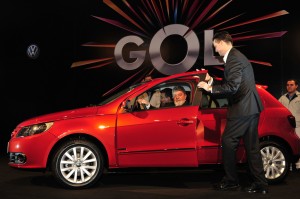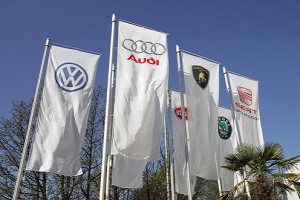The Volkswagen Group increased its global market share in the first six months of 2009 with help from effective German and Chinese government sales incentive programs in its two largest markets.
Europe’s largest automaker, with Audi, Skoda and Seat as volume brands, increased its share of the world passenger car market from January to June 2009 to 12% (half year 2008 was 9.9%), selling 3,100,300 vehicles in the process. This was a decline of 5% compared with the year earlier results; however, since the overall global market contracted almost 18%, VW estimated that it increased its penetration to equal GM’s at 12%, or about twice that of Nissan, which is being chased by Hyundai at 5%. Toyota surpassed GM last year as the world’s largest vehicle maker.
“The comparatively good trend in our sales figures shows that the Volkswagen Group is headed in the right direction,” said Detlef Wittig, Executive Vice President, Group Sales and Marketing. “Nevertheless, a major effort is needed in the second half of the year if we are to remain on course. Economic uncertainty will continue as the year progresses,” he warned.
Volkswagen brand cars grew by 1.7 percentage points to 8% or 1,949,000 cars. VW said this was due to “very positive” developments in Germany, Brazil and especially China, now the world’s largest auto market, which is now running at an 11 million unit annual rate.
VW Group also performed well most sales regions

Brazilian President Luiz Inácio Lula da Silva and Francisco Javier Garcia Sanz, Member of the VW Board of Management, at the launch of the new Gol.
While the passenger car market in Europe contracted by 18.4% overall, the Group reported a smaller drop of 11.7% to 1,662,900 units.
In North America where the market contracted by 33% VW dropped 13% to 221,900 vehicles.
In South America, its share of the passenger car market rose to 22%, largely based on sales of the Gol, the best selling vehicle in Brazil, the region’s largest market by far.
The Asia/Pacific sales region decreased by almost 1%, but VW Group reported a rise in the number of vehicles delivered to 723,800 units up 19%.
In China, deliveries increased 23% to 652,200 units.


